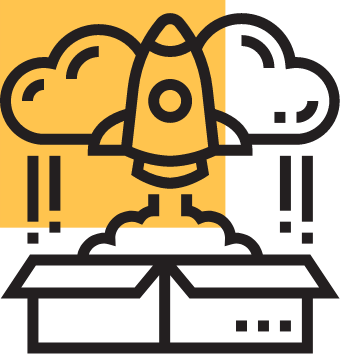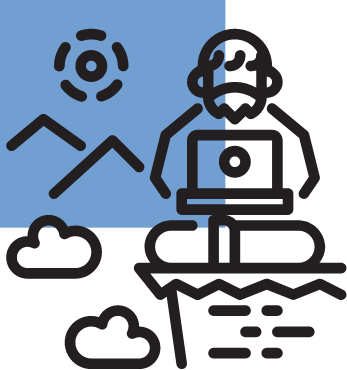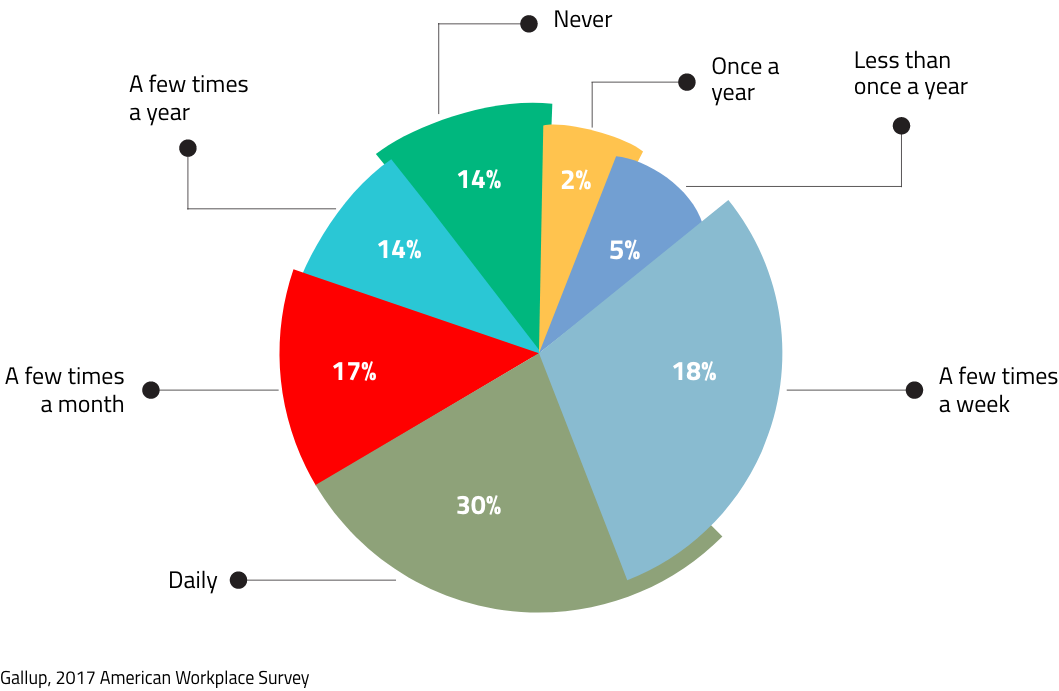TERMS AND CONDITIONS OF SERVICE TO BE READ AND ACCEPTED BEFORE USING THIS SITE.
By accessing and/ or using this site and any information or any service offered on this site, the User signifies his/ her acceptance of these Terms and Conditions and/ or any modifications thereof.
From time to time, 1to1help.net Pvt. Ltd. may modify these terms and conditions and therefore the User must review these terms and conditions whenever accessing or using this site.
- Applicability of these Terms and Conditions The use of this Site and the services offered herein are only available to Users who have registered through the Employee Assistance Program (EAP) and the services offered through this site for the Users include online counseling offered through the website, face to face counseling and Telephone counseling. These services can be accessed only by individuals currently employed by companies who have a valid EAP contract with 1to1help.net Pvt. Ltd.
- User's Consent to Terms and Conditions You agree that you are using this Site and services voluntarily and on your own accord. You have read and understood these Terms and Conditions and agree to be bound by them. You further agree to comply with Indian law regarding the transmission of any data or Services obtained from this Site in accordance with the Terms and Conditions.
- All information given by you during the course of counseling will be kept completely CONFIDENTIAL except where we are required under applicable law and/or professional ethics to disclose such information to government authorities or other designated persons (such as in cases of attempted or threatened suicide/homicide).
- Not for suicidal emergencies You are aware that the counseling services offered are only meant for psychological, relationship, workplace and parenting issues and not intended for crisis situations like suicide.
- Liability of Employer Any counselling session that a User may participate in pursuant to the EAP offered through your Employer’s initiative shall be at your own choice and discretion. Participation in the counselling session shall imply that you have understood the terms and conditions pertaining to such participation prescribed by your Employer from time to time. You specifically agree that your Employer shall not be responsible either directly or indirectly to you, your parents, your spouse or other dependents and/or your legal representatives against any and all claims, expenses, demands and costs that may be made following such participation. You specifically agree to indemnify and hold harmless your Employer in this regard.
- Restrictions on Use You may not use the Site for any illegal purpose or in any manner inconsistent with the Terms and Conditions. You agree to use this Site solely for your personal non-commercial use, and not for duplication, copying, or exploiting for any commercial purpose or other transfer or disposition to, or use by or for the benefit of, any other person or entity. The access to this site is granted, subject to these terms and conditions, solely for online viewing by the User himself/ herself and not for any other purpose
- Registration If you wish to register with the site or its owners, you agree to furnish only the correct information as required and to give information of any modifications to the information already submitted. The site owners reserve the right to change the login ID and/or password allotted to the User at its sole discretion under advice to the User. The registration on the site and the login ID and password assigned to you are not transferable. You shall be responsible for maintaining the confidentiality of your login ID and password. You shall immediately notify the site owners of any known or suspected unauthorized use(s) of your account, or any known or suspected breach of security, including loss, theft, or unauthorized disclosure of his/ her password or any other information. You are solely responsible for all usage or activity through your account. Any fraudulent, abusive, or otherwise illegal activity may cause the termination of the user's account, at the site- owners' sole discretion, and the site owners may refer the breach, etc. to appropriate law enforcement agencies and initiate legal action against the user.
- Intellectual Property All intellectual property rights, not limited to copyright, trademarks, patents, design rights and others in the contents of this site and belong wholly to the site owners. You may not other than for merely online viewing purposes, in any way and / or in any medium and/ or by any means copy, download, reproduce, recompile, de-compile, engineer, distribute, publish, display, modify, upload to, transmit, exploit any part or whole of this site. You may not use any of this site's or it's owners' trademarks, trade names or site marks in any manner which creates the impression that such names and marks are the User's property or the User is in any way associated with the site.
- Disclaimer and Limitation of Liability You agree that your use of this Site and the Services offered through this Site is voluntary and is at your sole risk and acknowledge that neither the owners nor the maintainers of this Site or anything contained therein, including, but not limited to the content, services, text, material, views or advertisements (the "Contents") make no warranty of any kind, express or implied, as to the Contents, opinions, views, interpretation including, but not limited to, merchantability, non-infringement, title or fitness for a particular purpose or use. Neither the owners nor the maintainers of this site warrant that the Site is compatible with your equipment or that the Site is free of any errors, Viruses, Worms, Trojans, etc. and are not liable for any damage that you may suffer as a result of using this site.
- The content of other services, goods or advertisements that may be linked to this Site is not maintained or owned by this site or its owners. This site or its owners or maintainers are therefore not responsible for the availability, content or accuracy of services or of goods that may be linked to, or advertised on this Site. The links and advertisements provided on this site may be followed/ accessed/ responded to you, at your sole risk and responsibility.
- You acknowledge that:
- This site or its owners are not responsible for any action taken by you based on the information/ advice given through this site.<
- this site or its owners or maintainers do not guarantee the sequence, accuracy, completeness or timeliness of the Site and any services therein; and
- the site either wholly or partly and any services therein may be subject to the terms and conditions of other agreements entered into by the site owners/ maintainers. Accordingly, anything to the contrary herein set forth notwithstanding, this site, its owners, its maintainers, its providers, its officers and employees, affiliates, subsidiaries, successors and assigns, suppliers and its third-party agents shall not, directly or indirectly, be liable, in any way, to you or any other person due to any:
- inaccuracies, errors, omissions, etc. from the Site and/ or
- delays, errors, interruptions in the transmission or delivery of the Site and/or its services and/ or
- loss or damage arising there from or occasioned thereby, or by any reason of nonperformance or negligence for any direct, indirect, incidental, consequential, special, punitive, exemplary or consequential damages in any case and under any circumstances.
- You represent, warrant and covenant that:
- You shall not use any rights granted hereunder for any unlawful purpose; and
- You shall use the Site only as per the terms and conditions set forth in these Terms and Conditions or any modifications thereof.
- You shall take informed independent decision before taking any action based on information/advice given on this site.
- You agree, at your own expense, to indemnify, defend and hold harmless the site-owners, maintainers, providers, its employees, affiliates, representatives, and agents, subsidiaries, successors, assigns, suppliers, and its third party agents against any claim, suit, action and/or other proceeding brought against them or any of them by a third party, to the extent that such claim, suit, action or other proceeding brought against them or any of them is based on or arises in connection with the Site or the services provided through the Site, or any links on the Site, including, but not limited to:
- Your use of the Site
- some other person using your account
- a violation of the Terms and Conditions by you or anyone using your account
- a claim that any use of the Site by you or someone else using your account infringes any Right or any Intellectual Property Right of any third party has been libelous or defamatory, or otherwise has resulted in injury or damage to any third party;
- any deletions, additions, insertions or alterations to, or any unauthorized use of, the Site by you or someone using your account;
- any misrepresentation or breach of representation or warranty made by you contained herein; or
- any breach of any covenant or agreement to be performed by you hereunder.
You agree to pay any and all costs, damages and expenses, including, but not limited to, reasonable attorneys' fees and costs awarded against or otherwise incurred by or in connection with or arising from any such claim, suit, action or proceeding attributable to any such claim.
- You agree and understand that any information provided by you during counseling sessions may be used by 1to1help in their research and training programmes in an anonymised form, without disclosing your identity.
- You understand and agree that 1to1help and its agents are not permitted to prescribe any medication or therapies.
- The maintainers or owners or providers of this site may, without any prior notice, at their sole discretion terminate your registration or use of service for any reason whatsoever, including but not limited to breach of any condition of the Terms and Conditions. The liability of the site owners in case of termination would be limited only to the refund of pro-rata subscription fees, if any has been paid and accepted.
- The content or any specifications of this Site at any time may be revised, changed, modified or temporarily or permanently withdrawn at the site's or its owners or providers sole discretion. You accept that such changes may result in your being unable to access the Site and/or services therein.
- If any provision of the Terms and Conditions is found invalid or unenforceable, that provision will be enforced to the maximum extent permissible and/ or possible, and the other provisions of these Terms and Conditions will remain in force.
- The Terms and Conditions on www.1to1help.net , and its successor, constitute the entire agreement between the user and this site, its owners and maintainers and govern the user's use of this Site and the services offered.
- You agree to be bound by these Terms and Conditions of usage at any time during or after accessing this site and also after ceasing to use/ access this site.
- These Terms and Conditions shall be governed and construed in accordance with the laws of India. All disputes are subject to Bangalore, India jurisdiction only.
 Request a call back
Request a call back




